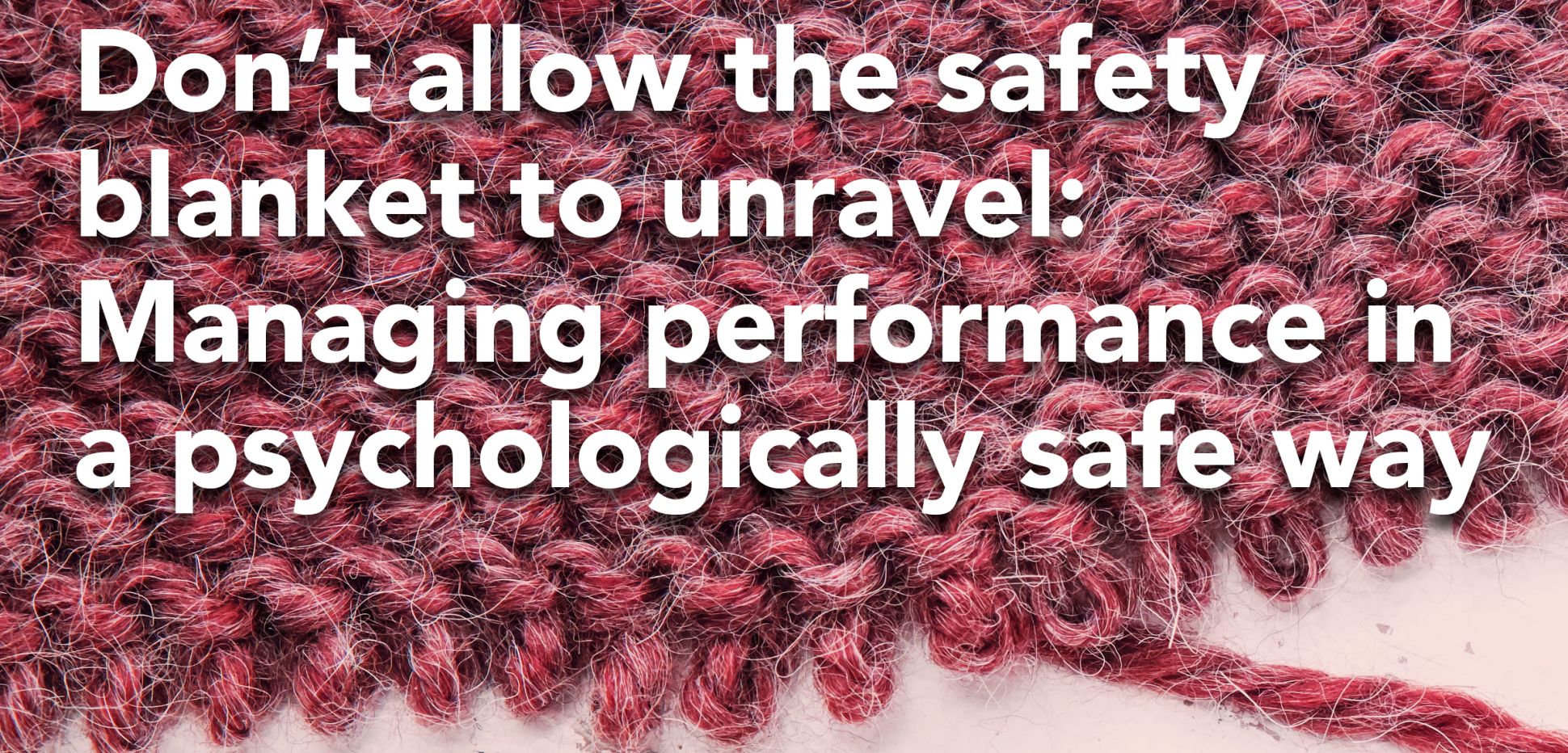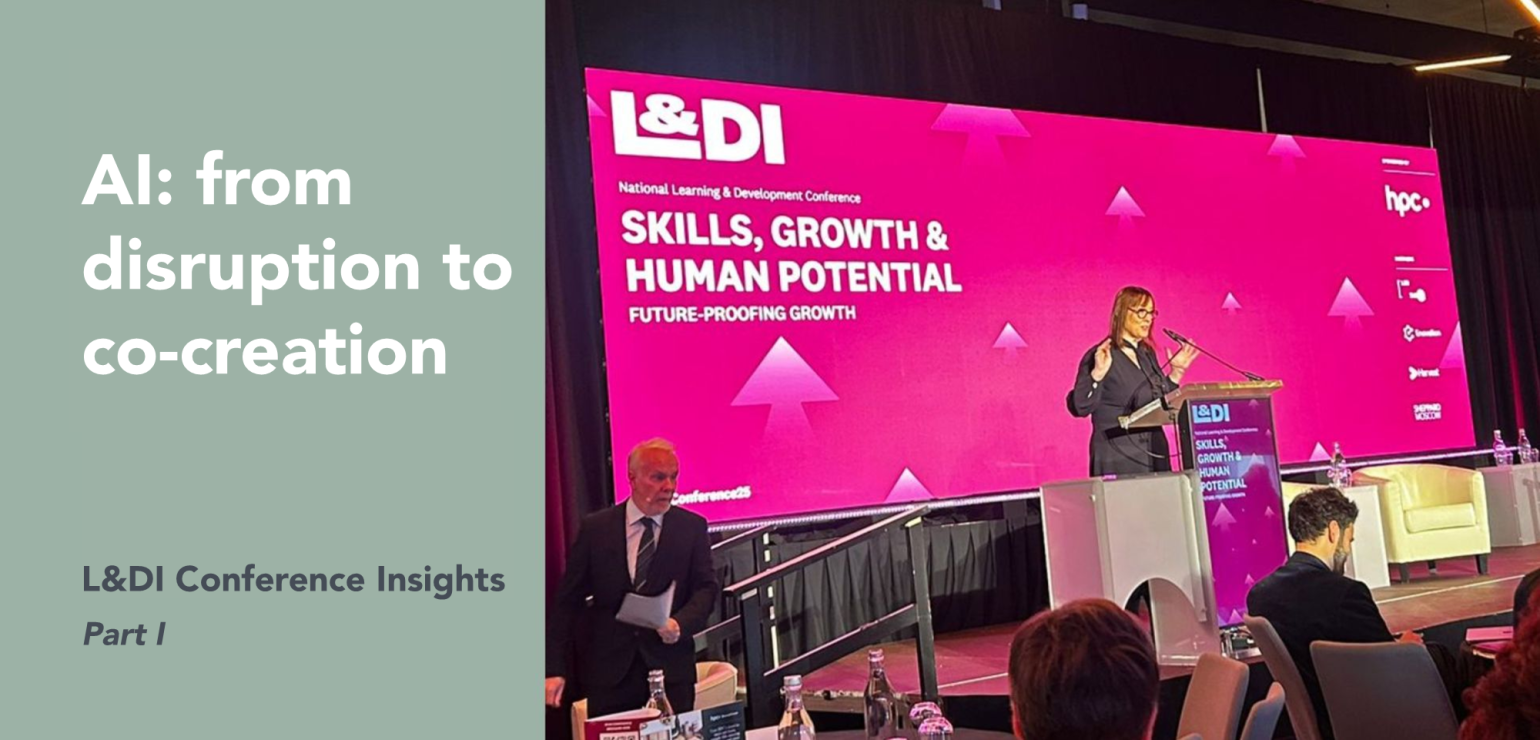Psychological safety and performance reviews

Aoife Keane reflects on the importance of psychological safety in the performance review process - for all parties.
I recently shared my thoughts about how to create a psychological safety blanket for yourself and your team where I spoke about things we can all do to create a sense of safety in the teams we’re a part of, not just those we lead
While it was a more general thought piece on the contributors to psychological safety, in conversations with clients over the last few months I’ve been realising how the same lessons can be applied in the context of performance management.
In various ways, for over the past 50 years as part of our leadership development offer, the Sheppard Moscow team have been working with several of our clients to equip their leaders to have effective and meaningful performance conversations. Which, at its core, is the ability to give feedback that really helps the person to flourish, rather than causing them to retreat.
Where leaders can often make a misstep that can cause lasting damage, is if the performance conversation occurs without the fundamental elements of psychological safety being in place. Because if the right climate hasn’t been created, even the most well-intended performance feedback can land badly. And things get even more difficult when you layer in the usual link organisations make between performance (often measured in a reductive rating scale) and reward. The result is often that people don’t actively seek feedback or defend against it in order to protect their pay packages, making for an awkward and often unfulfilling performance conversation, on both sides.
So, what can managers do to create more of an open dialogue about performance where both parties feel comfortable and safe exploring the often snaggy territory of performance?
And how do you create such a precious and delicate thing as psychological safety when there are so many potential snares to tear it, such as a fear of losing one’s bonus?
It comes down to meeting a few quite basic, but fundamental, human needs – the person whose performance is being reviewed needs to feel known and genuinely cared for by their reviewer. Meeting this basic human need well is ultimately what creates trust. And it can only be achieved if the reviewer is willing to abandon their egos and biases, and truly put themselves on the other person’s agenda – understand what’s important to them, their concerns and fears, checking in to see how the person really is and noticing and reflecting on what they see and hear back, so that the person feels seen and understood.
Also it’s critical that the reviewer takes the risk of making themselves vulnerable too. This reciprocity is important, for creating a safe environment where it’s ok not to know all the answers – not to be perfect. Reviewers can do this in a number of ways: for example, disclosing a bit about their hopes, fears and aspirations for their own career and being open about some of their own failings and mistakes.
Listening, empathy and dedicating time to the other person’s agenda are the bedrock skills needed to really make the person on the receiving end of the review feel safe and seen. Alongside this, it’s really important reviewers offer objective, data-driven feedback rather than personal feelings or hearsay, and they are willing to work compassionately with any defensiveness the reviewee may present.
On the other side of the desk (or screen, as the case may be...), there are also some things the person being reviewed can do to create the conditions for open, honest and developmental dialogue with their manager. Here I pull on one of the tips I shared in my last blog on how to create your own psychological safety blanket – firstly, assume positive intent by challenging yourself to believe that your manager really does have your best interests at heart. And secondly, put yourself in your boss’s shoes – what might they be hoping for in you? And what potential might they see?
Doing so will help you to find the common ground necessary to pull in the same direction and knit an even stronger blanket of psychological safety together (sorry I couldn’t resist one last blanket pun 😊).
If you enjoyed reading this article, here are a couple of related articles that might be of interest:
Creating a psychological safety blanket for you and your teammates
As ever, feel free to get in touch with the author of this piece personally - aoifekeane@sheppardmoscow.com

 Aoife Keane
Aoife Keane 

